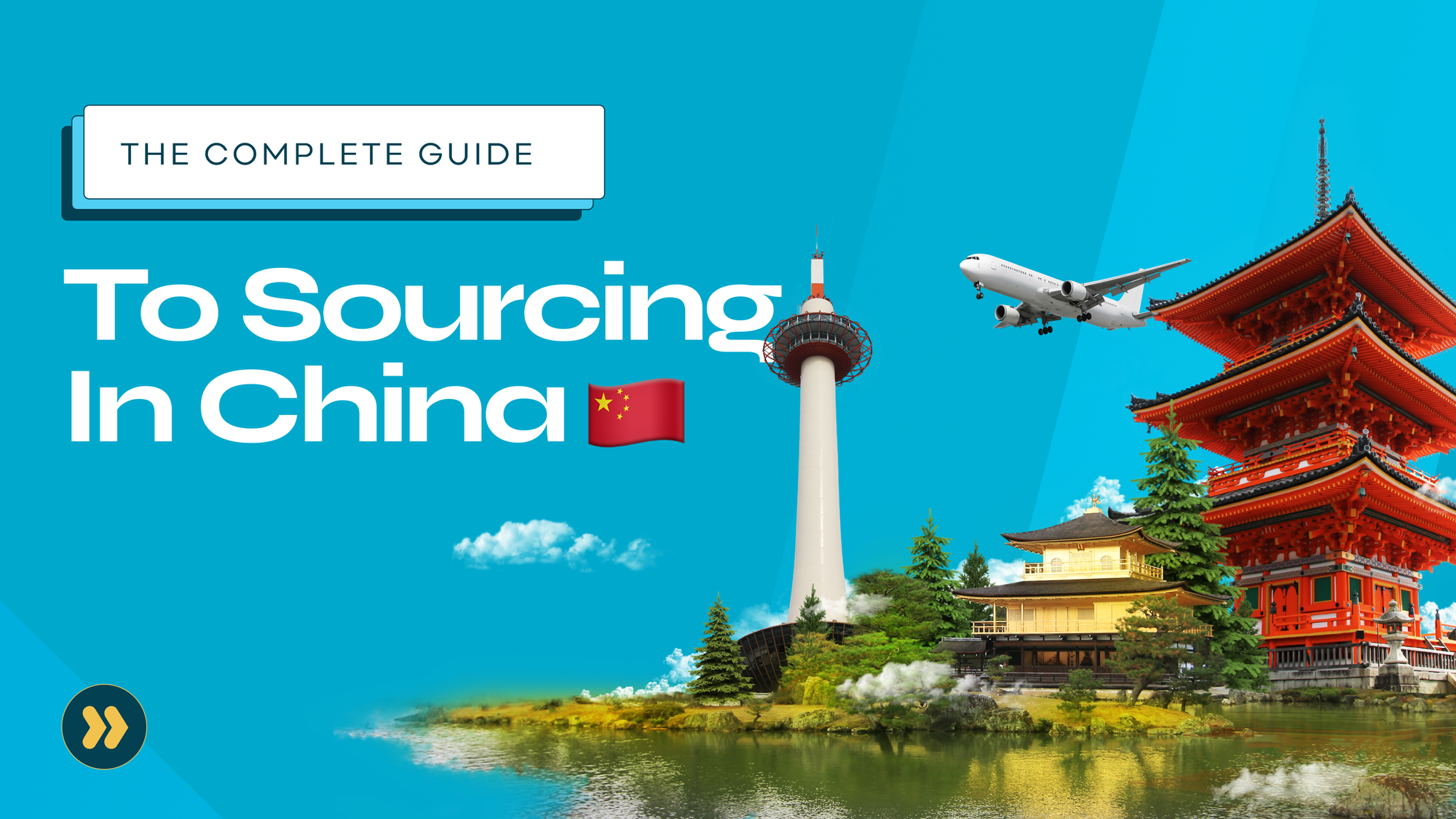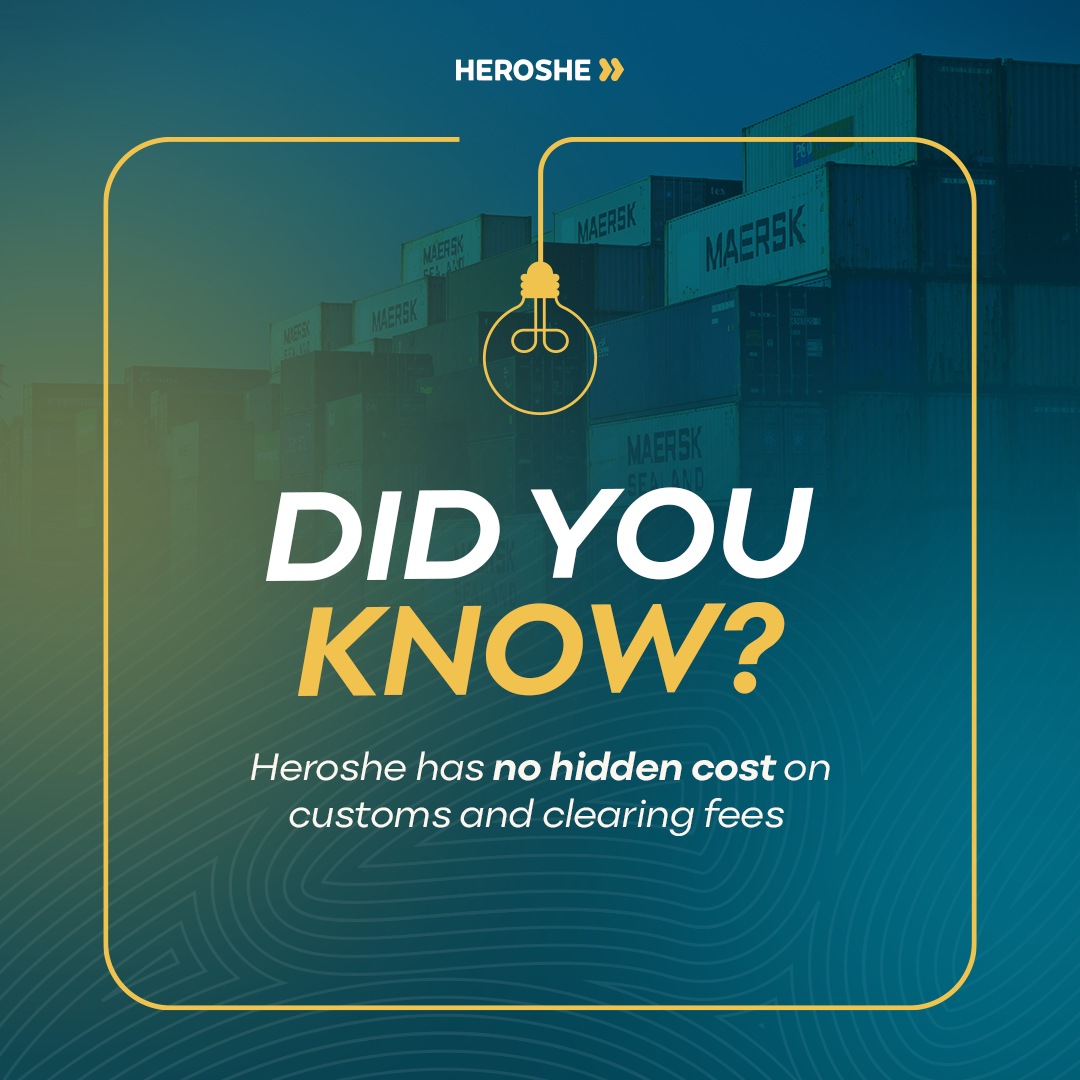The Complete Guide to Sourcing in China

When I was still a student at the University of Port-Harcourt, I considered mini importation a business I could do in school to make money. I attended online classes, bought books, and did a lot of research to stay informed. After all my research work, I dropped off and focused on building my writing skills. Although the idea of sourcing goods from China was exciting, the process of finding a supplier and a reliable agent was less exciting. I wasn’t ready to put in that much effort at that time.
It takes a lot of effort to understand the dynamics of the Chinese market and deal with their suppliers. If you're interested in successfully learning more about sourcing goods from China, this guide will teach you everything you need to know.
What is China Sourcing?
Sourcing is a process in procurement that involves searching, evaluating, and engaging suppliers to achieve set business goals, including cost savings and getting the best value for your money.
China sourcing refers to the process of purchasing goods from reliable suppliers in China. For a long while, businesses have been utilising sourcing in China because of its low costs, which helps them to save money while also getting the best value as opposed to manufacturing some of these items themselves.
Depending on your business size and goals, you might need multiple suppliers to help with your product sourcing needs. For example, a small business might need just a few suppliers. But, a few suppliers wouldn’t cut it if you are a large company. You will need to have a sourcing strategy and a sourcing company.
Advantages of Sourcing in China for Businesses
Sourcing in China has become increasingly popular over the years for many reasons. Here are some of the advantages of sourcing in China:
Cost Savings
One of the biggest advantages of sourcing in China is its cost savings. The cost of labour and materials is lower in China than in most other countries. This means you can procure goods at a lower price, which can help you be more competitive in the market.
Wide Range of Suppliers
China has a massive manufacturing industry with many suppliers in different sectors. This gives you access to a large number of suppliers, which can help you get the best products for your needs and budget.
High-Quality Products
Despite the perception that products made in China are of low quality, China has made huge strides in improving the quality of its products. You can get high-quality products that meet your specifications from the right supplier.
Efficient Production
Chinese manufacturers are known for their production efficiency. They have years of experience in manufacturing and have developed systems that can help them produce goods quickly and efficiently.
CustomisationSourcing in China is very convenient and advisable if you want to customise products. The manufacturers have the technology and expertise to create custom products that meet your unique requirements.
Related: How to Source Products For Your Online Store
Challenges that Come with Sourcing in China
Sourcing in China can be a challenging process, too. Here are some of the common challenges that you may face:
Language Barrier
One of the biggest challenges when sourcing in China is the language barrier. Most suppliers in China do not speak English fluently, which can lead to miscommunication and misunderstandings.
Cultural differences
China has a unique business culture, which can be difficult for people from other countries to understand. It is important to be aware of these cultural differences and to adapt your approach accordingly.

Quality control
Ensuring quality control can be a challenge when sourcing from China. It is vital to have a system to inspect and test products before they are shipped.
Fraud
Fraud is a risk when sourcing from any country and is also prevalent in China. It is important to do your due diligence and to work with reputable suppliers.
Related: 10 Reasons Why Your Dropshipping Business Will Fail
A Step-By-Step Guide to Sourcing in China
Here are a few tips to note before you begin sourcing products in China,
Define Yours Needs
One of the first things you must do while sourcing from China is define your needs. Doing this is essential to give you a successful outcome and strengthen your business operations. The following factors should be considered when defining your needs:
Product
You need to be specific about what you are looking to source. This includes the product type, model, and any necessary specifications. The more specific you are, the easier it will be for suppliers to understand your needs and provide accurate quotes.
Quality
Defining your quality standards is a step that you must take. This can include material specifications and performance requirements. Communicating these expectations clearly to potential suppliers to ensure the final product meets your requirements is essential.
Quantity
Consider the number of units you need to source. Be aware of any MOQs suppliers may have, as this can impact your sourcing options. It is also essential to consider any potential future demand for the product when determining your quantity needs. This helps you to avoid holding inventory for long periods.
Budget
Determine your financial constraints and target price range. This will help you narrow down potential suppliers and negotiate pricing. Keep in mind that the cheapest option may not always be the best option, as quality can be compromised.
Timeline
Establish clear deadlines for sourcing, production, and delivery. This can help suppliers prioritise your order and ensure the final product is delivered on time.
Research and Market Analysis
Research and market analysis are essential for effective product sourcing. You can better understand your target market, competition, import regulations, and industry trends by conducting thorough research and analysis.
The first step in research and market analysis is understanding your customer base and needs. Who are your customers? What are their preferences, buying behaviours, and pain points? Answering these questions helps you develop a customer profile to guide your sourcing decisions.
Identifying your competitors and researching their sourcing strategies is also important. Who are your main competitors? What products do they offer, and where do they source them from? By analysing your competitors' sourcing strategies, you can identify potential suppliers, compare prices, and develop a unique value proposition. Additionally, this research can help you identify any gaps in the market that you can fill with your products.
Import regulations are another essential factor to consider when sourcing from China. You should know any tariffs, duties, and trade policies that may impact your sourcing decisions. For example, certain products may be subject to higher tariffs, making them less profitable to import. You should also be aware of product safety, labelling, and certification regulations to ensure your products meet the required standards.
Finding reliable suppliers

Suppliers are the crux of your sourcing from China, and ensuring you get a reliable supplier is important. There are several ways to go about this, and online platforms are the most popular. Alibaba, Global Sources, and Made-in-China are just a few online platforms available to source suppliers. When using these platforms, check the supplier certifications, read reviews from other buyers, and request samples before making any commitments.
Another effective way to find reliable suppliers is by networking with other businesses and industry contacts. This includes attending trade shows, joining industry groups, and utilising social media platforms like LinkedIn. By connecting with other professionals in your industry, you can gain valuable insights and recommendations for reputable suppliers.

Sourcing agents can be a valuable resource for finding reliable suppliers. These agents have extensive knowledge and experience in sourcing products from China. They can leverage their expertise and network to guide you in finding the right supplier for your needs. It is important to thoroughly research and vet any sourcing agent before working with them and to establish clear communication and expectations from the start.
Vet and Verify Suppliers
After getting a list of suppliers you want to work with, a general rule of thumb is to vet and verify them before making any commitments. This process can save you time, money, and headaches. Here are some steps to help you assess supplier reputation and credibility:
Check for Reviews
Start by doing some research on the supplier. Look for reviews and ratings on online marketplaces, such as Alibaba. Check if they have any certifications or awards that indicate their reliability and quality. You can also ask for their business license and registration documents to verify their legitimacy.
Request References and Check Previous Client Feedback
Ask the supplier for references from previous clients. Contact these clients and ask about their experience working with the supplier. Find out if they delivered on time, if the products were of good quality, and if they were easy to work with.
Conduct Background Checks and Factory Audits
If you still need to determine the supplier's credibility, consider conducting a background check or factory audit. This can be especially important when dealing with larger orders or high-risk products. Background checks can reveal potential legal or financial issues with the supplier, while factory audits can give you insight into their production processes and quality control measures.
Communication and Negotiation
Communication and negotiation can make all the difference in your sourcing journey. Here are some important tips to consider:
- Establishing open and consistent communication channels ensures that both parties are on the same page. It's important to be proactive in your communication and to ask questions when needed.
- Use contracts to specify terms, conditions, and expectations. Have a written agreement outlining the work scope, payment terms, and delivery timelines.
- Clearly defining product details, quality standards, and customisation options is important to ensure that the final product meets your expectations. Be specific about product details, including materials, dimensions, and packaging requirements.
- Be prepared to negotiate price, payment terms, MOQs, and other key terms. Do your research on market prices to ensure that you are getting a fair deal.
- Adapt your communication style to respect Chinese business culture. Learn about Chinese business culture and customs to better understand your business partners.

Quality Assurance
To ensure that the products you receive meet your standards and specifications, it is important to have a comprehensive quality assurance plan in place.
Consider hiring professional inspectors to conduct third-party inspections. This can provide peace of mind and ensure that the products you receive meet your expectations.
Develop a quality control plan that includes regular inspections and sample checks throughout production. This plan should outline the specific quality standards that must be met and provide a framework for addressing quality issues.
Conduct thorough inspections before shipment is crucial to ensure compliance with your quality standards. These final inspections should be conducted by trained professionals who can verify that the products meet your specifications and are defect-free.
Building and Maintaining Relationships
Building and maintaining strong relationships is another step you want to take time to do. It is important to treat suppliers as partners, not just vendors. Doing so can improve collaboration and mutual respect, benefiting both parties in the long run.
Addressing issues promptly and transparently is important to maintaining a successful supplier relationship. It is equally important to treat your suppliers with fairness and ethics. This can include paying fair prices for their products, providing them with precise specifications and expectations, and being transparent about your business practices.
An Important Tip to Note
Popular communication channels like Instagram, X (Twitter), and Gmail are blocked in China, making it difficult to communicate as you would like. One of the ways to establish communication is using WeChatmust. While you can download WeChat and sign up, you will need a WeChat user based in China to verify your account.

Final Thoughts
Expanding your supplier base to China can make all the difference in your business. It can set you apart from the competition, help you reach a more extensive customer base, and increase your sales and revenue. It can also have a brutal effect on your business and revenue if you get it wrong. Getting it right means you must do your due diligence before committing to a supplier, ensuring that the quality meets the standard you endorse.
Part of sourcing suppliers also includes finalising all of your shipping details. Do you want to ship by air or sea? Who will be your freight forwarder? How will your items get to you in Nigeria?
With Heroshe launching China shipping soon, you will get affordable and reliable shipping from China to your doorstep in Nigeria. In the next few weeks, we will drop more tips on effectively shopping from China and getting your items delivered to Nigeria. Join the Heroshe community to get these tips first-hand when they drop.
FAQ About China Shipping
What is China sourcing?
China sourcing is the process of finding and purchasing goods or services from suppliers based in China. This can include anything from raw materials to finished products.
Why Should I Consider China Sourcing?
China is known for its low manufacturing costs, making it an attractive option for businesses to lower production expenses. Additionally, China has a vast network of suppliers offering a wide range of products and services.
How do I Find a Good Supplier in China?
You can use online marketplaces such as Alibaba, Made In China, and Global Sources. You can connect with your industry network to get references or work with a sourcing agent to find reputable suppliers. Be sure to ask for samples and references before committing to a supplier.
How do I communicate with My Supplier in China?
You can use WeChat to establish communication with your suppliers. It is also advised to get a translator who is fluent in Mandarin and English.
How can I Ensure Quality Control when Sourcing from China?
Establish quality standards with your supplier and conduct regular inspections throughout production. You can also consider hiring a third-party inspection company to ensure quality standards are being met. Another thing you can do is regularly ask for samples in cases where you can’t go to China or hire a third-party inspector.

